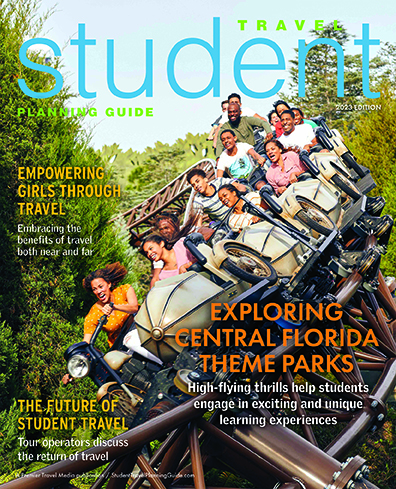A road trip is an unconventional choice for a school trip, but it presents the opportunity for many teachable moments. These immersive, exploratory experiences are few and far between. If you’re a passionate teacher, learn-as-you-go road trips can help you foster passion in your students.
- Start Planning as Early as Possible
The longer you spend planning, the better your outcome will be. Though road trips are by design more freeform than guided tours or pre-composed vacation packages, they will require an immense amount of planning. Give your students as much notice as possible, and keep them involved in the planning process.
- Consider How Much Everything Will Cost
Road trips might seem less expensive than flying, but in the end, they might wind up costing close to the same amount. The last thing you want is to be stuck broke and in a jam with your students. Set a strict budget, and plan to spend 20% more than your budget. That padding might help you should something unexpected occur.
- Map a Safe Route with Plenty of Leisure Stops
It’s not healthy to stay cooped up in a car all day. Besides that, your students won’t have much fun if their road trip consists of drive by experiences. Pick routes with plenty of stops that will encourage them to get out of the car and explore. If you need long term parking near a stop, you can always check Parkhound. You’ll be able to park your vehicles in local people’s driveways and take off on foot for a while.
- Let Everyone Make Suggestions
Every student needs to have something to be excited for. You’ll undoubtedly have multiple students excited about some of the same things, but make sure that everyone is truly happy. If you have one student who is particularly interested in geology and wants to stop at a unique rock formation, plan to stop if its along the route. Your students might be able to teach other students about their areas of interest. You never know what amazing experiences they may share.
- Use Apps to Coordinate
There are so many apps that make road trips easier. Apps for pre-planning, as well as apps that alert you of important stops along the way, can help keep the flow of the road trip smooth. You’ll also want a group messaging app to keep everyone in touch. In the event that someone gets separated from the group, every member of the group will get an alert. This makes reunification easier.
- Bring Some Camping Gear Along
Camping is a lot less expensive than staying at a hotel, and it also comes with some distinct advantages. Camping will help your students get to appreciate the essence of a place. Stopping at a national park or a wilderness site that allows camping creates new learning and bonding opportunities. They’ll get to see the stars and smell the trees. Camping is also a skill in and of itself, and if you bring a camping expert with you, everyone will learn a thing or two about roughing it.
- Have a Plan for Grumpy Students
Some people don’t do well being trapped in a car for an extended period of time. This is even more true if people with conflicting personalities are trapped in a car with no exit strategy. Create a backup plan for when things go wrong. Have multiple vehicles so that passengers can be re-arranged in the event of a conflict. Making an unplanned stop for people to freshen up, use the restroom, and get something to eat can reinvigorate tired students who are grumpy from a long ride.
Planning a safe and fun road trip requires a lot of forethought and backup plans. As long as you’re well-researched and good at thinking on your feet, you can plan a road trip that your students will remember for the rest of their lives.
Author
Sarah Kearns is a hard working mother of three daughters. She is a Senior Communications Manager for BizDb, an online resource with information about businesses in the UK. She loves cooking, reading history






